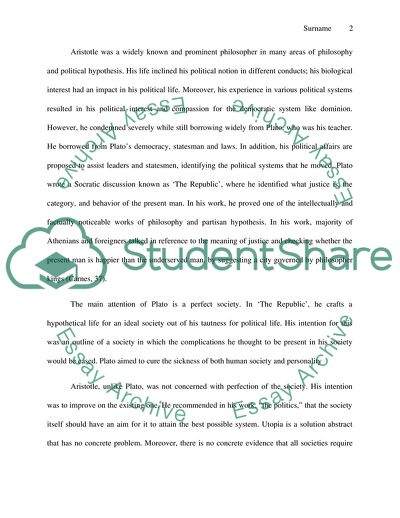Cite this document
(A Comparison of Plato and Aristotle on the Meaning and Significance of Political Life Essay Example | Topics and Well Written Essays - 1250 words, n.d.)
A Comparison of Plato and Aristotle on the Meaning and Significance of Political Life Essay Example | Topics and Well Written Essays - 1250 words. https://studentshare.org/social-science/1822800-political-life-philosophers
A Comparison of Plato and Aristotle on the Meaning and Significance of Political Life Essay Example | Topics and Well Written Essays - 1250 words. https://studentshare.org/social-science/1822800-political-life-philosophers
(A Comparison of Plato and Aristotle on the Meaning and Significance of Political Life Essay Example | Topics and Well Written Essays - 1250 Words)
A Comparison of Plato and Aristotle on the Meaning and Significance of Political Life Essay Example | Topics and Well Written Essays - 1250 Words. https://studentshare.org/social-science/1822800-political-life-philosophers.
A Comparison of Plato and Aristotle on the Meaning and Significance of Political Life Essay Example | Topics and Well Written Essays - 1250 Words. https://studentshare.org/social-science/1822800-political-life-philosophers.
“A Comparison of Plato and Aristotle on the Meaning and Significance of Political Life Essay Example | Topics and Well Written Essays - 1250 Words”. https://studentshare.org/social-science/1822800-political-life-philosophers.


